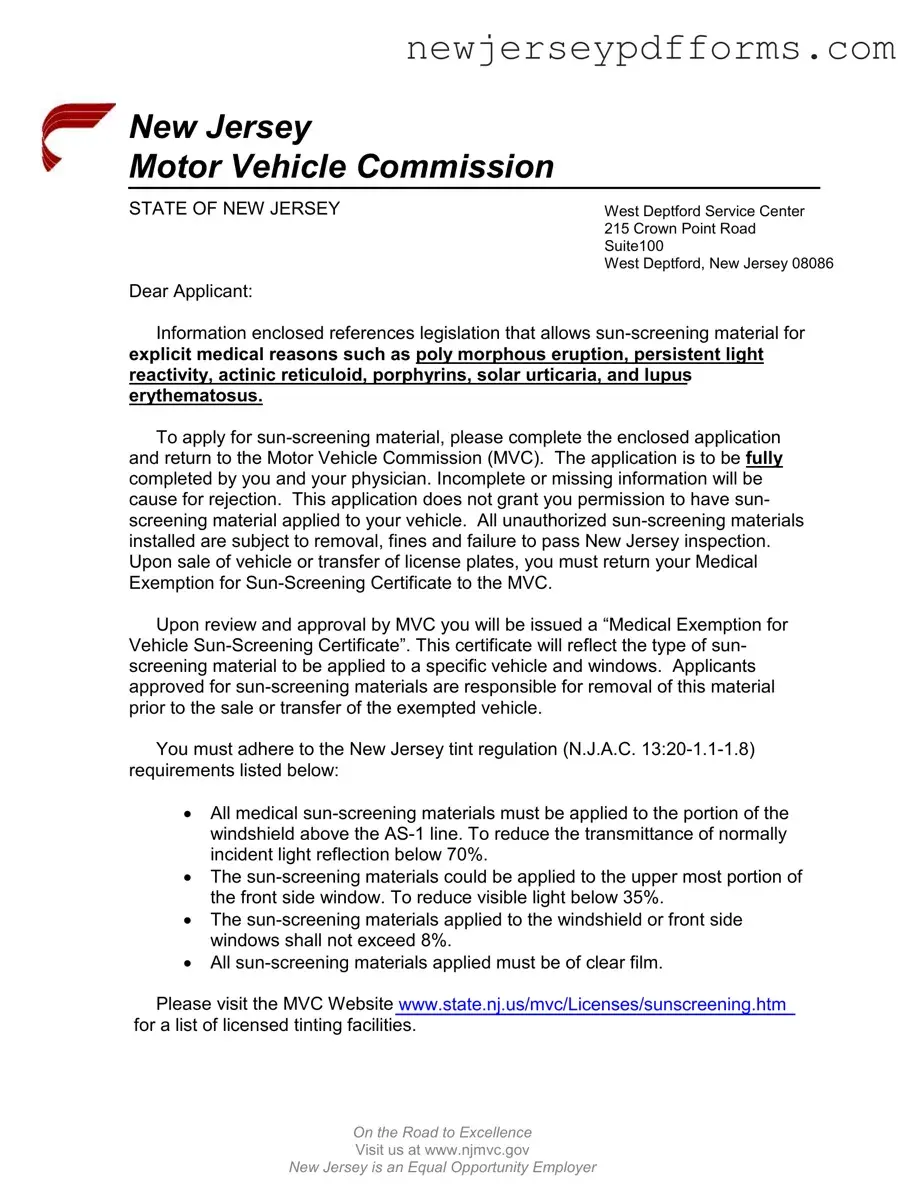What is the New Jersey MR-15 form?
The New Jersey MR-15 form is an application for a Medical Exemption for Vehicle Sun-Screening. It is designed for individuals who have specific medical conditions that necessitate the use of sun-screening materials on their vehicles. The form must be completed by both the applicant and their physician to ensure all necessary information is provided.
Who qualifies to use the MR-15 form?
Individuals with certain medical conditions, such as polymorphous light eruption, persistent light reactivity, actinic reticuloid, porphyrins, solar urticaria, and lupus erythematosus, may qualify to use the MR-15 form. A physician must confirm the medical necessity for sun-screening materials as part of the application process.
What are the steps to apply for the Medical Exemption?
To apply for the Medical Exemption, complete the MR-15 form with the required information about yourself and your vehicle. Your physician must also fill out their section, detailing your medical condition and the recommended treatment. Once both sections are complete, submit the form to the New Jersey Motor Vehicle Commission (MVC) at the specified address.
What happens after submitting the MR-15 form?
After the MVC reviews your application, you will be issued a “Medical Exemption for Vehicle Sun-Screening Certificate” if approved. This certificate will specify the type of sun-screening material that can be applied to your vehicle and its windows. It is important to note that submitting the application does not automatically grant permission to apply sun-screening material.
What are the regulations regarding sun-screening materials?
There are specific regulations that must be followed when applying sun-screening materials. For instance, any material must be applied above the AS-1 line on the windshield, and the visible light transmittance must be reduced to below 70% for the windshield and below 35% for the front side windows. Additionally, only clear films are permitted, and the application must not exceed 8% on the specified windows.
What should I do if I sell or transfer my vehicle?
In the event of selling or transferring your vehicle, you must return your Medical Exemption for Sun-Screening Certificate to the MVC. It is also your responsibility to remove any sun-screening materials from the vehicle before the sale or transfer. Failure to do so may result in fines or complications during the vehicle inspection process.

